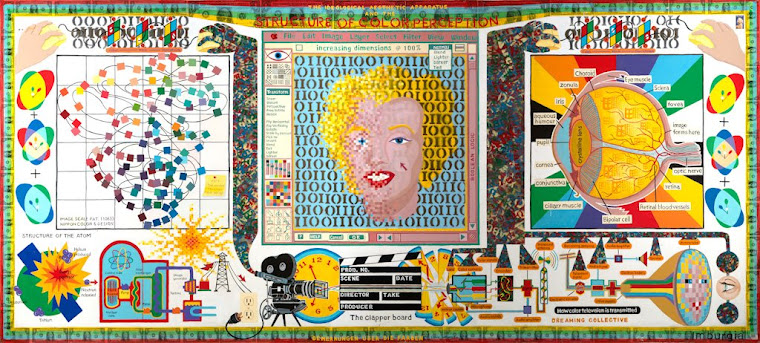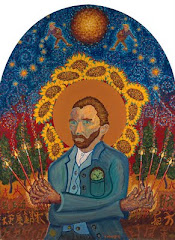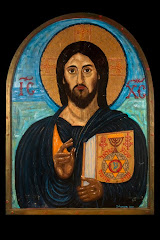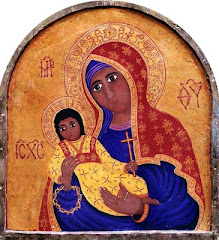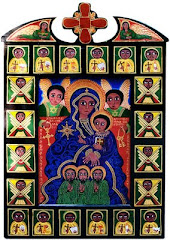
“There Eyes Were Watching God:”
Watching Mel Gibson’s Apocalypto last night, this scene from the movie suggested itself to me as something to reflect upon during lent. The movie seems to borrow a bit from Joshua in the Old Testament, Black Elk Speaks, the Gospel of John, ‘Grand Theft Auto IV, and Popul Vuh effectively (if not without some controversy, but let’s face it, without predicting the end of the world, no one would pay much attention to Mayans). Let me offer up just one scene, with obligations to Morning Minions:
On the tribe’s last night together before being attacked, scattered, enslaved and killed, the Mayan natives gather around their wise old storyteller who tells them of a Man (sic) “drenched deep in sadness:” In this traditional story, the animals, feeling empathy for the sorrow of Man, come to him and invite him to seek from them whatever he needs. Asking first for sight, the man receives it as a gift from the keen sighted vulture. Seeking strength, the jaguar then shares his own with the man. The man, wanting to know the secrets of the earth, finds even the serpent offering: ‘I will share them all with you.’ The old story teller continues: "And so it went with all the animals. And when the Man had received all the gifts that all other life could give, he left them to be with his own kind. Then the owl said to the other animals: ‘Now the Man knows much and is able to do many things. Suddenly I am afraid.’ The deer said: ‘The Man has all that he needs. Now his sadness will stop.’ But the owl replied: ‘No. I saw a hole in the Man. Deep like a hunger he will never fill. It is what makes him sad and what makes him want. He will go on taking and taking until one day the World will say: ‘I am no more and I have nothing left to give.’"
I don’t want to belabor the point, but as much as I dislike the Jew-bashing Gibson he has some interesting insights into the human condition (although “What Women Want” may not be the best example of this). Perhaps contemplating the ‘dark hole’ in his own savage heart has opened his soul to his need for mercy and grace (I know that usually works for me). Also, it’s reported that Mel fancies drinking large amounts of “Johnny Walker Black” which was also a favorite of existentialist J.P. Sartre, so let’s cut him a little slack and give the medicine time to do it’s work, who knows maybe Mel will film a version of Sartre’s “Reflections on the Jewish Question." Now for those of you in the “Jesus hates religion” crowd there’s plenty in this movie to feast on! Pompous potentates, elaborate liturgies, super-stitious spectacles, ecclesiastical intrigue, and blood, rivers of blood....
I have been re-reading Zora Neal Hurston’s “There Eyes Were Watching God” for another project (see below) and in chapter 16 she writes:
“It was inevitable that she [Janie] should accept any inconsistency and cruelty from her deity as all good worshippers do from theirs. All gods who receive homage are cruel. All gods dispense suffering without reason. Otherwise they would not be worshipped. Through indiscriminate suffering men know fear and fear is the most divine emotion. It is the stones for altars and the beginning of wisdom. Half gods are worshipped in wine and flowers. Real gods require blood.”
We Roman Catholics share a real affinity for this kind of religion! When I saw that sacrificial scene in Apocalypto on the temple mount with the King and Queen, the Mayan Pontiffs and Mitre’s, those vestal virgins, and the knife wielding priests, well a phantasmic pre-memory arose in my innards and I compunctiously reached for my rosary and chanted ‘Our Father’s’ and ‘Hail Mary’s’ right up until the eclipse, that sacred sacrifice of the Sun, that saved the last innocent native soul from Xbalba’s wrath and our need for scapegoats.
Yes, we RC’s have always known that there’s always just the shearest veneer of catecheticaly woven lace between us and Apocalypto. 6000 years of “progress” from the pre-Socratics to Saint Paul, to Thomas Aquinas, to Barth and Balthasar, and yet the fate of the Shire still balances on the knife edge of a most bestial cataclysmia (for evidence, simply watch the trans-vaginalized speeches of Rick Sanctorum and Newt Gingrich). Well, I pray that the Lenten Quadragesima be a time for y’all of painful but spiritually fruitful self-reflection, self denial, the embracing of our own darkness, and a new rising towards the unimaginable light of an all encompassing redemption of the whole world.
Kyries Eleison
Obliged.
p.s. just an Easter reminder from Jesus: "Unless you eat my flesh and drink my blood, you have no life in you. Whoever eats my flesh and drinks my blood remains in me and I in him." John 6:53, 56.




